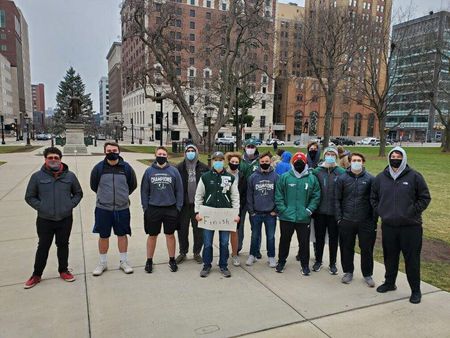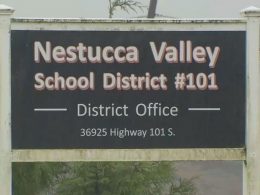Salem, OR – A legislative task force tasked with studying the public health impacts of alcohol abuse and evaluating whether raising alcohol taxes could fund addiction treatment has wrapped up its work without issuing any formal recommendations.
The task force, formed earlier this year, was charged with addressing two pressing issues: the rising rates of alcohol abuse and the potential for a tax increase on alcoholic beverages to generate revenue for addiction treatment programs. However, after several months of hearings, expert testimony, and deliberations, the group announced it could not reach a consensus on a specific course of action.
Members of the task force acknowledged the complexity of the issue, with some expressing concerns about the potential unintended consequences of raising alcohol taxes. While proponents argued that higher taxes could help curb consumption and fund vital addiction services, others worried about the economic impact on businesses, particularly small bars and restaurants, and whether such a measure would disproportionately affect low-income communities.
“We’ve heard a lot of strong opinions on both sides, and the issue isn’t as clear-cut as we had hoped,” said [Name], chair of the task force. “There are many factors at play, and the impact of raising alcohol taxes is not something that can be easily predicted. More data and research may be needed to determine the best path forward.”
Throughout the task force’s investigation, members heard from a range of stakeholders, including public health experts, addiction counselors, local business owners, and representatives from the alcohol industry. Some argued that a tax increase could serve as a disincentive for excessive drinking, which has been linked to rising rates of alcohol-related deaths and hospitalizations. Others pointed to the success of similar measures in other states, where funds raised from alcohol taxes have been allocated to addiction treatment and prevention programs.
However, there were also concerns about the effectiveness of alcohol taxes in reducing overall consumption. Critics argued that such taxes could have a minimal impact on drinking patterns, particularly among those struggling with addiction, while also creating economic burdens for the hospitality sector.
The task force also noted that the issue of alcohol abuse and addiction is multifaceted, requiring a broader, more nuanced approach. Some members advocated for expanded access to mental health services and support systems that address the root causes of addiction, while others highlighted the need for more targeted prevention efforts, particularly in communities disproportionately affected by alcohol abuse.
Despite the lack of consensus, the task force did acknowledge the importance of addressing alcohol abuse as a public health priority. According to [Name], a key member of the task force, the group’s discussions underscored the urgency of finding solutions to the growing addiction crisis, particularly as the state continues to grapple with rising healthcare costs and the broader economic consequences of alcohol-related harm.
“While we may not have a clear recommendation at this time, the conversations we’ve had over the past few months have shed light on some important issues that need to be addressed,” [Name] said. “There is broad agreement that alcohol abuse is a serious public health challenge, and it’s something we will continue to work on moving forward.”
The task force’s inability to produce a definitive recommendation leaves the door open for further debate in the coming legislative sessions. Advocates for alcohol tax increases and addiction treatment programs remain hopeful that lawmakers will continue to explore these options, while others are calling for a more comprehensive approach to addiction prevention and treatment that extends beyond fiscal measures.
In the coming months, it is expected that further discussions will take place as legislators continue to consider potential solutions to the state’s ongoing alcohol abuse crisis. For now, the task force’s work stands as a reminder of the complexities surrounding public health policy and the challenges of crafting effective solutions to addiction and substance abuse.











